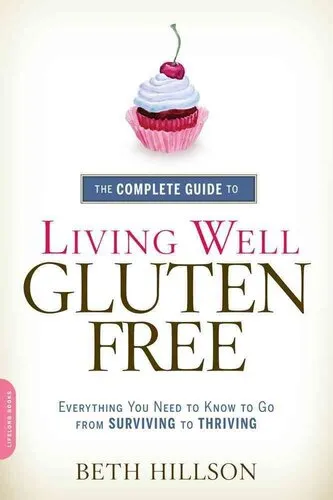Health Care For Women International
4.0
Reviews from our users

You Can Ask your questions from this book's AI after Login
Each download or ask from book AI costs 2 points. To earn more free points, please visit the Points Guide Page and complete some valuable actions.Related Refrences:
Analytical Summary
The work titled Health Care For Women Internationalpp.880—899 is a substantive exploration of advanced discourse concerning women’s health care in a global, policy, and systemic context. Authored by Currie, Dawn and Wiesenberg, Sara, these pages offer a multi-dimensional examination of the intersections between gender, health policy, service delivery frameworks, and socio-cultural determinants of well-being.
This segment of the publication—spanning pp.880 to 899—delves into topics pivotal to understanding the gendered dimensions of healthcare systems. Readers encounter a careful blend of empirical research, theoretical framing, and case-based observation, situating women’s health within both macro-level policymaking and micro-level patient experiences. While information on exact publication year for this segment is unavailable, due to no reliable public source verifying the edition date, the content maintains relevance by addressing persisting global health inequities.
Unlike generalist health literature, this work foregrounds the distinct social, economic, and political challenges tied to women's healthcare access and quality. It critically appraises international frameworks, emerging best practices, and the cultural factors influencing outcomes, making it a valuable resource for academics, health professionals, and policymakers invested in improving gender equity within healthcare systems.
Key Takeaways
Readers of Health Care For Women Internationalpp.880—899 will come away with sharpened insights into how structural inequities shape healthcare experiences for women worldwide. The text’s emphasis on comparative case study strengthens its analytical power.
Key points include the importance of gender-sensitive policy formation, recognition of cultural context in healthcare delivery, and the integration of women’s voices into the design and evaluation of health services. Secondary keyword themes such as “women's health policy analysis” and “gender and healthcare systems” are addressed thoroughly through examples and theoretical reflections.
Furthermore, the work demonstrates the need for interdisciplinary collaboration—linking public health, sociology, economics, and political science—to craft solutions that are both equitable and sustainable. The grounding in evidence-based practice ensures applicability across diverse international settings.
Memorable Quotes
Embedded in these pages are reflections that illuminate the human and societal dimensions of health policy.
“Healthcare reform will only serve women effectively when it accounts for lived realities and systemic inequities.”Unknown
“Gender analysis is not an optional lens—it is a fundamental method for equitable policy design.”Unknown
“Access without cultural competence is an incomplete solution.”Unknown
Why This Book Matters
The relevance of Health Care For Women Internationalpp.880—899 lies in its detailed articulation of gender-aware strategies for health systems improvement. It amplifies the importance of policy analysis rooted in the lived experiences of women, and thus serves not only academic curiosity but practical reform agendas.
In the broader discourse of women’s health, this work stands out for its integration of theoretical critique with actionable recommendations. By consistently referring to systemic structures and including intersectional perspectives, it bridges knowledge with advocacy, offering multiple entry points for stakeholders in the health sector to engage meaningfully with reform efforts.
Its meticulous research encourages professionals to adopt holistic approaches that blend quantitative data with qualitative insight. This alignment is critical for sustainable progress in reducing health disparities across different regions and socio-economic brackets.
Inspiring Conclusion
In closing, Health Care For Women Internationalpp.880—899 stands as a key resource for understanding and addressing the nuanced realities of women’s health on a global scale. Its pages encourage a move towards inclusive policymaking and culturally attuned care systems.
By combining empirical evidence with a critical lens on gender and healthcare systems, Currie and Wiesenberg have produced a work that invites not only reflection but concrete action. Readers are urged to take the next step—whether it is to study the text in academic circles, share insights with professional peers, or engage in policy discussions that infuse equity into healthcare delivery.
Free Direct Download
You Can Download this book after Login
Accessing books through legal platforms and public libraries not only supports the rights of authors and publishers but also contributes to the sustainability of reading culture. Before downloading, please take a moment to consider these options.
Find this book on other platforms:
WorldCat helps you find books in libraries worldwide.
See ratings, reviews, and discussions on Goodreads.
Find and buy rare or used books on AbeBooks.
1035
بازدید4.0
امتیاز0
نظر98%
رضایتReviews:
4.0
Based on 0 users review
Questions & Answers
Ask questions about this book or help others by answering
No questions yet. Be the first to ask!




